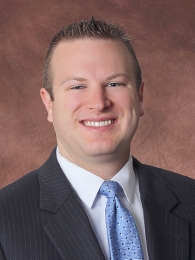Last Thursday, the United States Supreme Court voted 6-3 in favor of the defendants in the case of King v. Burwell. In that case, the petitioners argued that the words, “an exchange established by the state” in the Affordable Care Act meant that only Americans purchasing health care coverage from a State-run exchange (such as Kentucky’s “kynect” exchange) were eligible for a subsidy. Such an interpretation would mean that Indiana residents purchasing their health insurance coverage from a Federal exchange (healthcare.gov) would not be eligible for such subsidies. This interpretation of the Affordable Care Act brought the legality of a central feature of the law into question, as millions of Americans in 34 states receive Federal subsidies to purchase health insurance on the Federal insurance exchange. Had the Supreme Court ruled in favor of the petitioners, those Americans purchasing health care coverage on a Federal exchange would have lost their subsidies, rendering their Federally-mandated health care coverage unaffordable for many.
Ultimately, the Supreme Court ruled that the intent of the law had been to strengthen insurance markets and that even if a literal reading of the language used in the law indicated that citizens in states that did not have a State-run exchange could not get subsidies, the law should be interpreted as though they should. This was somewhat surprising, because the language of the Affordable Care Act appeared to give individual states the freedom to choose whether or not their citizens would be able to get subsidies.
This is significant for Indiana employers because the Affordable Care Act’s employer penalties are triggered by an employee obtaining a Federal subsidy to purchase health insurance. If Indiana residents had been unable to receive Federal subsidies for their health insurance coverage, their employers would not have been subject to penalties.
For additional information, please contact attorney Steve Theising at stheising@KDDK.com or (812) 423-3183.
About the Author

Steven M. Theising, an attorney at Kahn, Dees, Donovan & Kahn, LLP (KDDK), in Evansville, Indiana, practices primarily in the areas of business, construction, real estate, tax and employee benefits, and collection and creditors’ rights law. Steve utilizes his accounting and financial background to provide both legal and practical business analysis in negotiating, resolving and closing business, construction and real estate transactions and disputes. He also assists clients with addressing and resolving environmental and estate planning issues.




